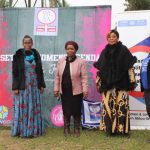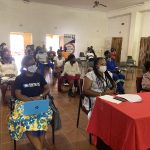WLSA conducts activist research in the even countries. By activist research we mean research which is intended to inform and influence action being taken to improve women’s legal position and which incorporates action into the research by educating women about their legal rights, providing legal advice, questioning and challenging the law as well as instigating campaigns for changes in the law in the course of research.
The research program is carried out in phases during which all the seven countries choose a research topic. Research in planned collectively by the researchers in the seven countries, and the results are compared at the regional level.
The following research topics have been studied by WLSA; in 1990-1991, Maintenance Law; in 1992 to 1993, Inheritance Law; 1994-1996; Family and the Legal Status of Women In the Family; the Administration of Justice; Delivery Problems and Constraints is the research topic for 1997-2001.
WLSA research is done collectively by multidisciplinary teams of 6-8 persons in each country, two of whom are employed fulltime by WLSA while the others are employed elsewhere in jobs related to WLSA work and do the research part-time. This structure is designed to ensure that WLSA research findings are immediately incorporated in the work of the researchers, and that the researchers’ experience in different fields of women and development and the law are incorporated into the research that WLSA does.
WLSA research investigates both customary law and general law, and the interaction between the two. WLSA takes the perspective that the official customary law of Southern African states is a rigid skewed and sometimes distorted version of the actual customary law at the time when it developed which often a little to do with the lives of the people in whose name it has been applied. We believe that the historical roots of customary law must be uncovered and a fresh analysis of women’s rights must be made. We also attempt to rethink legal concepts to ascertain their true nature in customary law and women’s position in that system.
We find it necessary to study today’s customary law, as it is applied in semi-autonomous social fields not directly regulated by the state, such as the family.






